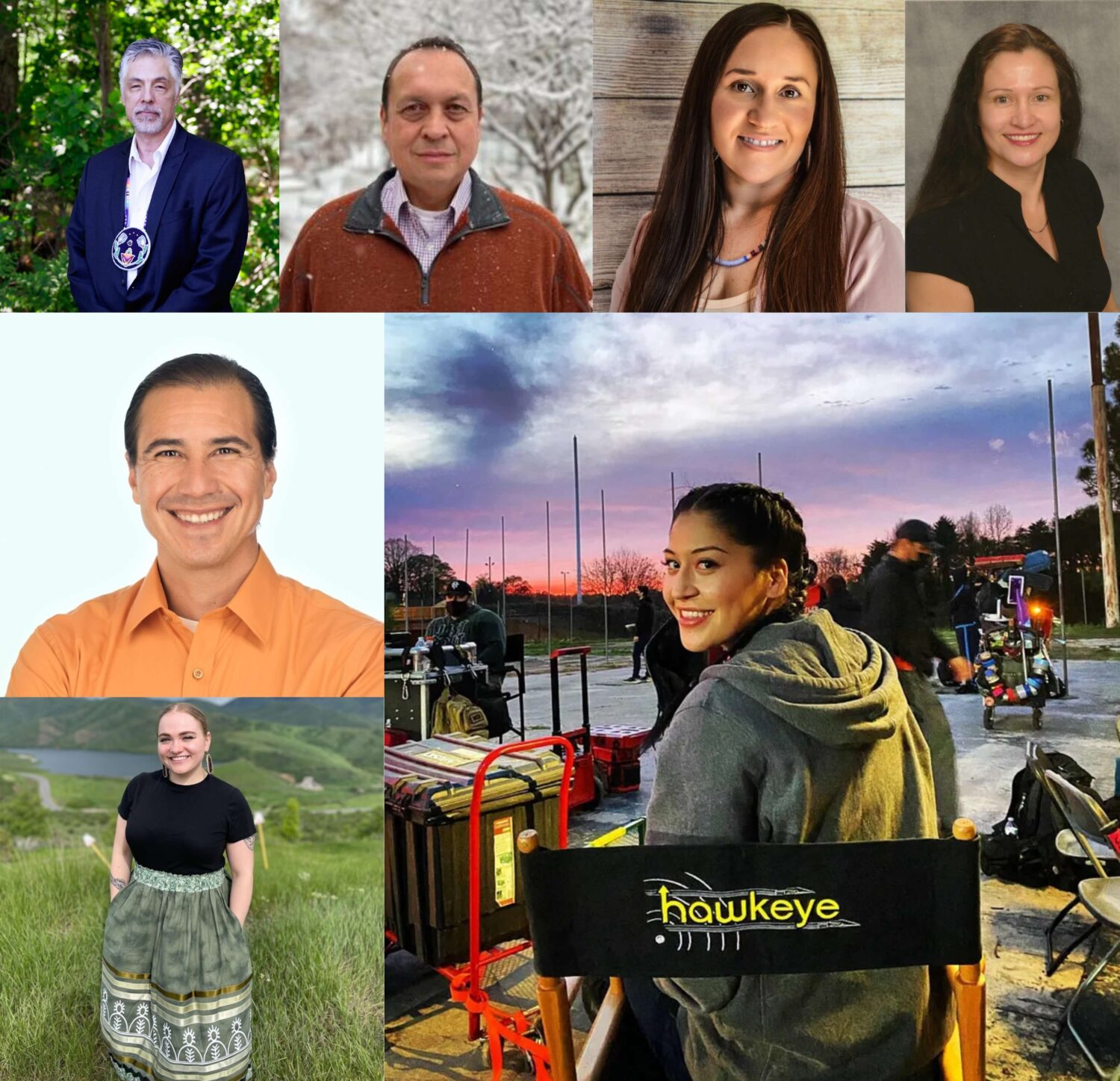
Just months after we published our first news stories in August 2015, we tried something new: we listed and published brief biographies of the state’s 28 Most Influential Black Leaders. People really liked it, shared it on social media, told us who else should have been on that list. Many asked me if we’d do another list the next year; I said yes, we probably would.
We did more than that. That next year, we published another list of the state’s most influential Black leaders, as well as a list of the state’s most influential Latino leaders. Almost immediately, we started hearing an important and very reasonable question: what about the state’s Asian American and Indigenous leaders?
We wanted to do those lists, but we wanted to do them right. It took us some time to build the authentic relationships within those communities, and to gain their trust. I’m glad and proud that we took that time and did that work; it resulted in us publishing those lists for the first time in 2020.
This week we are proud to present the fifth annual edition of Wisconsin’s Most Influential Native American leaders.
Every year, with every list, I’ve intended these lists to highlight the beauty of the diversity across our state. I want kids here in Wisconsin to see role models of people who are succeeding, to know that it’s possible for people of color to achieve great things here.
This week we shine a statewide spotlight on the dedicated leaders of Wisconsin’s Indigenous communities. The people we highlight this week are elected leaders, business leaders and community leaders, doing difficult, important work, often in the face of discrimination and literally generations of oppression.
We are also aware that this list, like every other, is not comprehensive. It’s obvious just from the number of nominations that there are far more than 33 influential Indigenous leaders doing good work in Wisconsin. We hope you will let us know about people in your community who we can include on future lists. For now, though, we just want to introduce you to a few of the people doing the work, often behind the scenes and without the accolades, across Wisconsin.
You might know a few of these names, but there’s a good chance that most of them will be new to you. I urge you to get to know them. Reach out to those living and working in your communities. Learn from them, network, create partnerships. And spread the word — let others in your network know that we have people of all ethnicities living and working across Wisconsin to make sure everyone here can thrive.
Henry Sanders
CEO, 365 Media Foundation
Publisher, Madison365
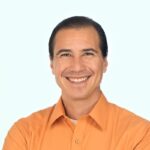 Ashley Hesse is VP of Policy for Indigenous Pact, an organization that works for health equity for Indigenous people. A Comanche descendant, he joined Indigenous Pact in 2018 with years of experience in health equity, which included managing the “Money Follows the Person” Tribal Initiative at the Wisconsin Department of Health Services and directing programs for Arc-Winnebago County Disability Association. He also serves on the board of Casa Esther and previously chaired the City of Oshkosh’s Diversity, Equity and Inclusion Advisory Committee.
Ashley Hesse is VP of Policy for Indigenous Pact, an organization that works for health equity for Indigenous people. A Comanche descendant, he joined Indigenous Pact in 2018 with years of experience in health equity, which included managing the “Money Follows the Person” Tribal Initiative at the Wisconsin Department of Health Services and directing programs for Arc-Winnebago County Disability Association. He also serves on the board of Casa Esther and previously chaired the City of Oshkosh’s Diversity, Equity and Inclusion Advisory Committee.
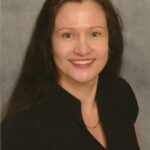 Denise Wiyaka is director of the UW Madison American Indian and Indigenous Studies program, where she spearheads the Annual Evening of Storytelling and established the Elder-in-Residence program as associate director in 2018. She was recruited to American Indian Studies in 2001 by Ada Deer, became associate director in 2003 and assumed the role of Director in 2021. Denise has expanded Indigenous Language offerings through collaborative initiatives with Tribes, with the goal of ultimately offering courses in all languages of the Tribes in Wisconsin. She is a member of the Yankton Sioux Tribe and grew up on the reservation in South Dakota. She holds a law degree from the University of Oregon and an LLM from Georgetown University.
Denise Wiyaka is director of the UW Madison American Indian and Indigenous Studies program, where she spearheads the Annual Evening of Storytelling and established the Elder-in-Residence program as associate director in 2018. She was recruited to American Indian Studies in 2001 by Ada Deer, became associate director in 2003 and assumed the role of Director in 2021. Denise has expanded Indigenous Language offerings through collaborative initiatives with Tribes, with the goal of ultimately offering courses in all languages of the Tribes in Wisconsin. She is a member of the Yankton Sioux Tribe and grew up on the reservation in South Dakota. She holds a law degree from the University of Oregon and an LLM from Georgetown University.
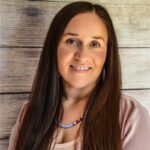 Dr. Rosa Yekuhsiyo King is founder of Tehatiw^nakhwa Language Nest, an immersion program that teaches the Oneida language to students aged 3 to 8. She is also an adjunct instructor at St. Norbert College in DePere and College of Menominee Nation, teaching Indigenous culture, history and language. She has a bachelor’s degree in American Indian Studies from the University of Minnesota Twin Cities, a master’s degree in Tribal Administration and Governance from the University of Minnesota Duluth and a doctorate in First Nations Education from the University of Wisconsin Green Bay where she focused her research on Indigenous language immersion education.
Dr. Rosa Yekuhsiyo King is founder of Tehatiw^nakhwa Language Nest, an immersion program that teaches the Oneida language to students aged 3 to 8. She is also an adjunct instructor at St. Norbert College in DePere and College of Menominee Nation, teaching Indigenous culture, history and language. She has a bachelor’s degree in American Indian Studies from the University of Minnesota Twin Cities, a master’s degree in Tribal Administration and Governance from the University of Minnesota Duluth and a doctorate in First Nations Education from the University of Wisconsin Green Bay where she focused her research on Indigenous language immersion education.
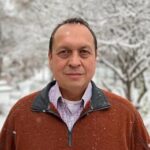 Brian Vigue oversees Audubon Great Lakes’ freshwater policy efforts, with a special focus on Wisconsin. He has over 20 years of experience in government affairs and policy development, most recently working as a Special Initiatives Advisor at the Wisconsin Department of Administration, where he served as the primary point of contact between the Wisconsin of Administration and the Wisconsin State Legislature. Previously, he has worked in the U.S. House of Representatives, the Wisconsin State Legislature, various state agencies, the Office of the Governor and the Wisconsin Wetlands Association. Vigue grew up in Green Bay and is a citizen of the Oneida Nation. He graduated with a bachelor’s degree from St. Norbert College and he is currently on the Executive Committee at the Children’s Health Alliance of Wisconsin.
Brian Vigue oversees Audubon Great Lakes’ freshwater policy efforts, with a special focus on Wisconsin. He has over 20 years of experience in government affairs and policy development, most recently working as a Special Initiatives Advisor at the Wisconsin Department of Administration, where he served as the primary point of contact between the Wisconsin of Administration and the Wisconsin State Legislature. Previously, he has worked in the U.S. House of Representatives, the Wisconsin State Legislature, various state agencies, the Office of the Governor and the Wisconsin Wetlands Association. Vigue grew up in Green Bay and is a citizen of the Oneida Nation. He graduated with a bachelor’s degree from St. Norbert College and he is currently on the Executive Committee at the Children’s Health Alliance of Wisconsin.
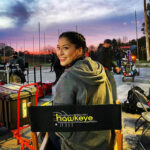 Alaqua Cox is the star of the Marvel Studios series Echo, portraying the scrappy and deadly fighter Maya Lopez. The comic book character made her television debut in 2021’s Hawkeye. Cox grew up on the Menominee Indian Reservation in northern Wisconsin and attended the Wisconsin School for the Deaf, where she played basketball and volleyball. She says she had no thoughts of fame – or even acting – in her youth. But when a casting call from Marvel sought a Deaf Native American woman in her 20s, a friend urged her to try out. She hesitated, but then got the same text from a few more friends … and decided to go for it. With more than 200,000 Instagram followers, she continues to represent the Menominee and Mohican people, as well as Deaf people and amputees.
Alaqua Cox is the star of the Marvel Studios series Echo, portraying the scrappy and deadly fighter Maya Lopez. The comic book character made her television debut in 2021’s Hawkeye. Cox grew up on the Menominee Indian Reservation in northern Wisconsin and attended the Wisconsin School for the Deaf, where she played basketball and volleyball. She says she had no thoughts of fame – or even acting – in her youth. But when a casting call from Marvel sought a Deaf Native American woman in her 20s, a friend urged her to try out. She hesitated, but then got the same text from a few more friends … and decided to go for it. With more than 200,000 Instagram followers, she continues to represent the Menominee and Mohican people, as well as Deaf people and amputees.
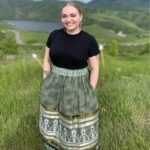 Shelby Siebers is cultural adviser and Native American support specialist at the Appleton Area School District. A member of the Oneida Nation, she recently became an art educator with the Trout Museum in Appleton where she shares her skill in Indigenous beading. Each year in her role with AASD, she has planned different events in celebration and recognition of Indigenous cultures, and advises a Native American Student Organization at each of the AASD high schools. In May 2023 she played a significant role in planning and hosting a 5K to raise awareness for Missing and Murdered Indigenous Women. She earned her degree in psychology and ethnic studies at Lawrence University in 2020.
Shelby Siebers is cultural adviser and Native American support specialist at the Appleton Area School District. A member of the Oneida Nation, she recently became an art educator with the Trout Museum in Appleton where she shares her skill in Indigenous beading. Each year in her role with AASD, she has planned different events in celebration and recognition of Indigenous cultures, and advises a Native American Student Organization at each of the AASD high schools. In May 2023 she played a significant role in planning and hosting a 5K to raise awareness for Missing and Murdered Indigenous Women. She earned her degree in psychology and ethnic studies at Lawrence University in 2020.
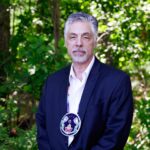 Dr. Russell Besikwebizod Swagger is president of Lac Courte Oreilles Ojibwe University. He also serves on the Wisconsin State Higher Education Aids Board, the UW-Madison Extension Board of Visitors and the American Indian Higher Education Consortium. He is an enrolled member of the St. Croix Band of Lake Superior Chippewa and was given the Ojibwe name Besikwebizod. His great grandmother’s family were enrolled members of the Lac Courte Oreilles Ojibwe Tribe. President Swagger has worked in the field of tribal higher education for 30 years with a primary focus on student services and senior administration. He also served as a CEO of a homeless shelter for a year and a half. He earned his Ph.D. from Capella University, a degree of Master in Management from University of Mary in Bismarck, N.D., a Bachelor of Science degree from Minot State University, and an Associate degree from United Tribes Technical College.
Dr. Russell Besikwebizod Swagger is president of Lac Courte Oreilles Ojibwe University. He also serves on the Wisconsin State Higher Education Aids Board, the UW-Madison Extension Board of Visitors and the American Indian Higher Education Consortium. He is an enrolled member of the St. Croix Band of Lake Superior Chippewa and was given the Ojibwe name Besikwebizod. His great grandmother’s family were enrolled members of the Lac Courte Oreilles Ojibwe Tribe. President Swagger has worked in the field of tribal higher education for 30 years with a primary focus on student services and senior administration. He also served as a CEO of a homeless shelter for a year and a half. He earned his Ph.D. from Capella University, a degree of Master in Management from University of Mary in Bismarck, N.D., a Bachelor of Science degree from Minot State University, and an Associate degree from United Tribes Technical College.
Part Two coming tomorrow!



